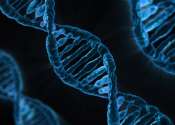Inner-ear disorders may cause hyperactivity
Behavioral abnormalities are traditionally thought to originate in the brain. But a new study by researchers at Albert Einstein College of Medicine of Yeshiva University has found that inner-ear dysfunction can directly cause ...
Sep 5, 2013
0
0




